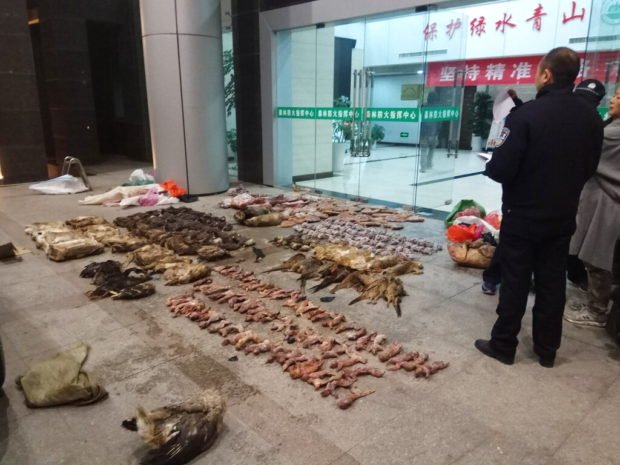
BEIJING – China cracked down on the sale of exotic species after an outbreak of a new virus in 2002 was linked to markets selling live animals. The germ turned out to be a coronavirus that caused SARS.
The ban was later lifted, and the animals reappeared. Now another coronavirus is spreading through China, so far killing 1,380 people and sickening more than 64,000 — eight times the number sickened by SARS.
The suspected origin? The same type of market.
With more than 60 million people under lockdown in more than a dozen Chinese cities, the new outbreak is prompting calls to permanently ban the sale of wildlife, which many say is being fueled by a limited group of wealthy people who consider the animals delicacies. The spreading illness also serves as a grim reminder that how animals are handled anywhere can endanger people everywhere. (AP)



